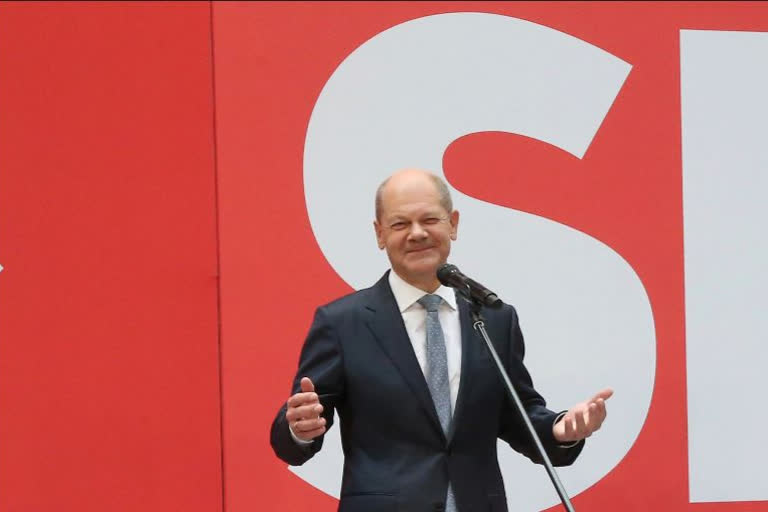Berlin:The party that narrowly beat outgoing German Chancellor Angela Merkel's bloc pushed Monday for a quick agreement on a coalition government amid concerns that Europe's biggest economy could be in for weeks of uncertainty after an election that failed to set a clear direction.
Olaf Scholz, the candidate of the center-left Social Democrats, called for Merkel's center-right Union bloc to go into opposition after it saw its worst-ever result in a national election. Both finished with well under 30% of the vote, and that appeared to put the keys to power in the hands of two opposition parties — raising questions over the stability of a future government.
During her 16 years in office, Merkel was seen abroad not just as Germany's leader but in many ways as the leader of Europe, helping steer the European Union through a series of financial and political crises.
The unclear result combined with an upcoming French presidential election in April creates uncertainty — at least for now — in the two economic and political powers at the center of the EU, just as the bloc faces a resurgent Russia and increasing questions about its future from populist leaders in eastern countries.
Both outgoing finance minister and Vice Chancellor Scholz and Armin Laschet, the Union's candidate and governor of North Rhine-Westphalia state, staked a claim to leading the new government on Sunday night. Scholz, who pulled his party out of a long poll slump, sounded confident on Monday.
But the kingmakers are likely to be two prospective junior partners in any coalition, the environmentalist Greens and the business-friendly Free Democrats. The Greens traditionally lean toward the Social Democrats and the Free Democrats toward the Union, but neither ruled out going the other way on Sunday night.
Also Read:Germany embarks on tricky search for post-Merkel government
"Voters have spoken very clearly," Scholz said Monday. "They strengthened three parties — the Social Democrats, the Greens and the Free Democrats — so this is the visible mandate the citizens of this country have given: These three parties should lead the next government."
The only other option that would have a parliamentary majority is a repeat of the outgoing "grand coalition" of the Union and Social Democrats. That is the combination that has run Germany for 12 years of Merkel's 16-year tenure, though this time it would be under Scholz's leadership with Merkel's bloc as junior partner. But that coalition has often been marred by squabbling, and there is little appetite for it.
